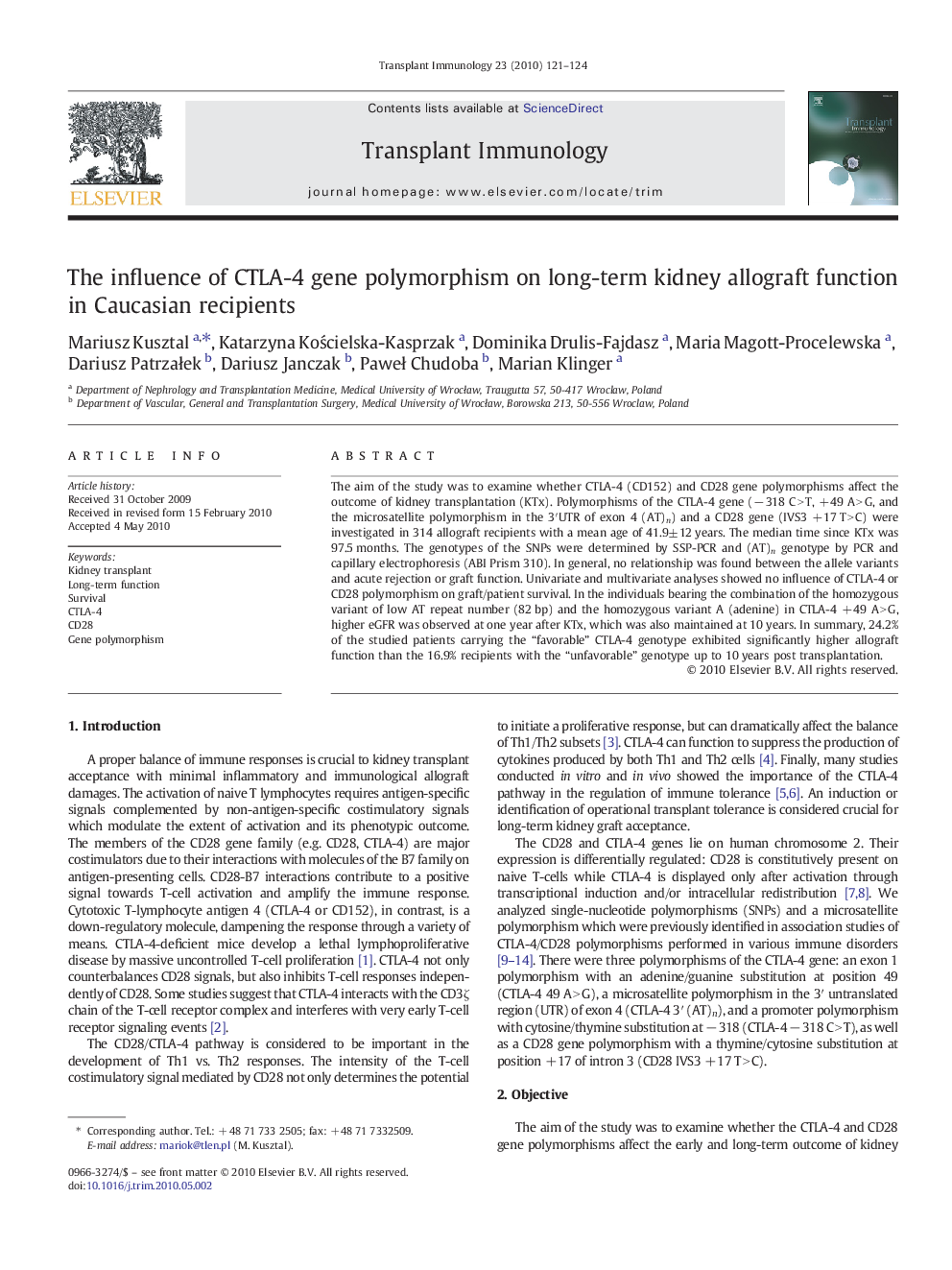| Article ID | Journal | Published Year | Pages | File Type |
|---|---|---|---|---|
| 3392317 | Transplant Immunology | 2010 | 4 Pages |
The aim of the study was to examine whether CTLA-4 (CD152) and CD28 gene polymorphisms affect the outcome of kidney transplantation (KTx). Polymorphisms of the CTLA-4 gene (− 318 C > T, + 49 A > G, and the microsatellite polymorphism in the 3′UTR of exon 4 (AT)n) and a CD28 gene (IVS3 + 17 T > C) were investigated in 314 allograft recipients with a mean age of 41.9±12 years. The median time since KTx was 97.5 months. The genotypes of the SNPs were determined by SSP-PCR and (AT)n genotype by PCR and capillary electrophoresis (ABI Prism 310). In general, no relationship was found between the allele variants and acute rejection or graft function. Univariate and multivariate analyses showed no influence of CTLA-4 or CD28 polymorphism on graft/patient survival. In the individuals bearing the combination of the homozygous variant of low AT repeat number (82 bp) and the homozygous variant A (adenine) in CTLA-4 + 49 A > G, higher eGFR was observed at one year after KTx, which was also maintained at 10 years. In summary, 24.2% of the studied patients carrying the “favorable” CTLA-4 genotype exhibited significantly higher allograft function than the 16.9% recipients with the “unfavorable” genotype up to 10 years post transplantation.
